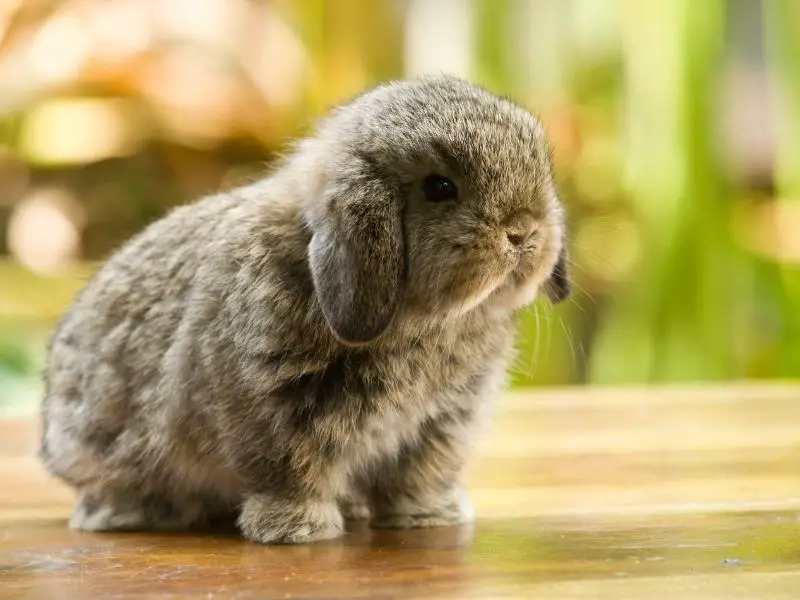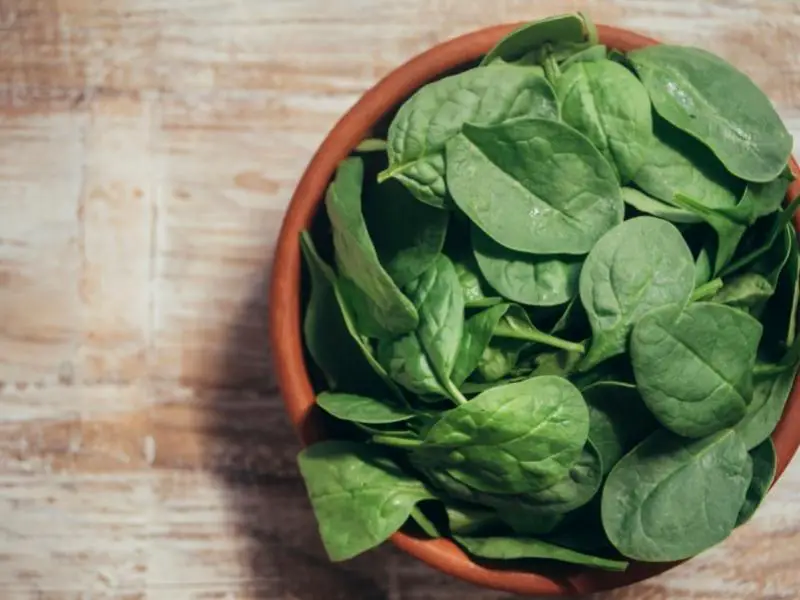Popeye the Sailorman always said that spinach is packed with vitamins and minerals. Maybe you have eaten a spinach salad, and now you are wondering if the same applies to your floppy-eared friend.
So can rabbits eat spinach?
Rabbits can eat spinach for occasional feedings, and it shouldn’t be given to rabbits daily. Spinach is rich in essential nutrients and low in sugar. However, spinach contains high calcium oxalate (a mineral compound), affecting a rabbit’s ability to absorb other nutrients.
Have you decided to add spinach to your rabbit’s diet but are unsure if these leafy greens are the best option? This detailed guide will provide all the information you need regarding spinach.
Can Rabbits Eat Raw Spinach?
Domestic and wild rabbits should only eat organic, fresh, and raw spinach. Be wary of spinach that has begun to wilt. You may notice the spinach forms a slimy layer on the leaves and develops a foul odor.
If your bun consumes this spinach, they will become very ill and demonstrate the following symptoms:
- Lethargy
- Vomiting
- Diarrhea
- Trembling
- Loss of appetite
Cooking spinach removes most of the nutrients and causes the leaves to be limp.
Feeding your floppy-eared friend crisp spinach is the best option. Ensure that the spinach is washed thoroughly, as pesticides and chemicals can make your rabbit ill.
Your bun can also eat the spinach stems and stalks, which hold the most nutritional value. They’re also high in fiber.
It’s best to avoid feeding the roots of the spinach plant to your bun, as they contain the most sugar, which will upset the good flora in your bun’s stomach.
Benefits of Feeding Spinach to Rabbits

Dark green leafy vegetables such as spinach are classified as a superfood due to their high levels of nutrients and vitamins. Let’s take a look at some of the benefits of feeding spinach to your floppy-eared friend:
- Spinach contains beta carotene, a vital nutrient for vision, cell growth, and maintaining healthy organs.
- It contains an organic pigment known as lutein, which protects a rabbit’s eyes from sun damage, reduces inflammation, defends against eye disease, and lowers cholesterol.
- It reduces oxidative stress (imbalance between free radicals and antioxidants in your bun’s body).
- It’s a good source of fiber, which keeps your bun’s digestive tract running smoothly.
- It contains vitamin A and C, which is vital in maintaining your bunny’s well-being and boosting their immune system.
- Spinach contains folic acid, which is vital for red blood cell formation.
- It contains calcium for maintaining strong and healthy bones and teeth. It also assists in preventing osteoporosis (a condition where the rabbit’s bones become brittle).
- The levels of potassium in spinach help regulate the kidneys, which in turn reduces blood pressure.
- Spinach is high in minerals such as manganese, iron, and magnesium, which are vital for your bun’s well-being.
Risks of Feeding Too Much Spinach to Rabbits
Even though spinach is classified as a superfood, there are still risks involved when eating spinach in large amounts.
Let’s take a look at some of the risks of feeding too much spinach to rabbits:
- Spinach contains oxalates (an organic acid), which build up in your bun’s urinary tract. This can become toxic if too much spinach is consumed, causing unpleasant symptoms such as difficulty passing urine and itchiness of the skin and mouth.
- If you don’t wash the spinach thoroughly before giving it to your bun, the traces of pesticides and chemicals can upset their stomachs.
- If spinach isn’t stored correctly, it can grow mold and begin to ferment. This is very dangerous if your bun consumes it. Eating fermented vegetables can be fatal for your rabbit.
- Consuming too much calcium can cause bladder stones and other bladder issues, such as milky urine and infections.
How Much Spinach Can I Give My Rabbit?
As long as your long-eared friend has a varied and healthy balanced diet, offering them an occasional spinach snack will be beneficial.
As a rabbit owner, it’s essential to consider the size of your bun when feeding them spinach:
- Small and medium-sized rabbits (such as the Dwarf and Mini Lop) can have a leaf or two.
- Large and giant breeds (such as the Rex and Flemish giant) can have up to ½ a cup of spinach.
Even though rabbits love spinach, you should only feed your bun spinach once every 3 days, as you want to avoid an increased level of oxalic acid in their system.
When first introducing spinach to your rabbit’s diet, make sure to monitor them closely. If your bun reacts badly to spinach, it will display the following symptoms:
- Lying down
- Diarrhea
- Vomiting
- Lack of appetite
- Hunched over in pain
- Milky urine
If your bun displays any of these symptoms, remove the spinach from their diet for about three weeks. You can then try introducing it again. If the same symptoms appear, then cut spinach from their diet.
Can Baby Rabbits Eat Spinach?
Even though adult rabbits enjoy eating spinach, that doesn’t mean it’s a safe option for baby rabbits (kits). It’s not recommended for kits under 12 weeks old to eat spinach or any other kind of fruit or vegetable.
Kits have very fragile digestive systems as they are still growing and developing. Eating spinach too early will cause digestive issues such as:
- Runny poop
- Constipation
- Obvious discomfort such as hunching over
- Lack of appetite
- In severe cases, it can lead to death
Your baby rabbits should only have their mother’s milk until they are ready for more solid food after 12 weeks.
My Last Bunny Thoughts
As a bunny owner, you must ensure that your floppy-eared friend has a balanced and varied diet. Introducing vegetables such as spinach is a great way to bond with your bun and keep mealtime interesting.
Just make sure not to overdo it, as spinach can cause nasty and unpleasant side effects if given to your bun daily or in excess. Try to alternate spinach with vegetables that aren’t as calcium-rich, such as baby spinach, kale, and bok choy.
Never give your pet rabbit cooked, frozen, or canned spinach, as this will cause an array of digestive issues for your bun. Fresh and organic spinach is always best.
Related Articles:

